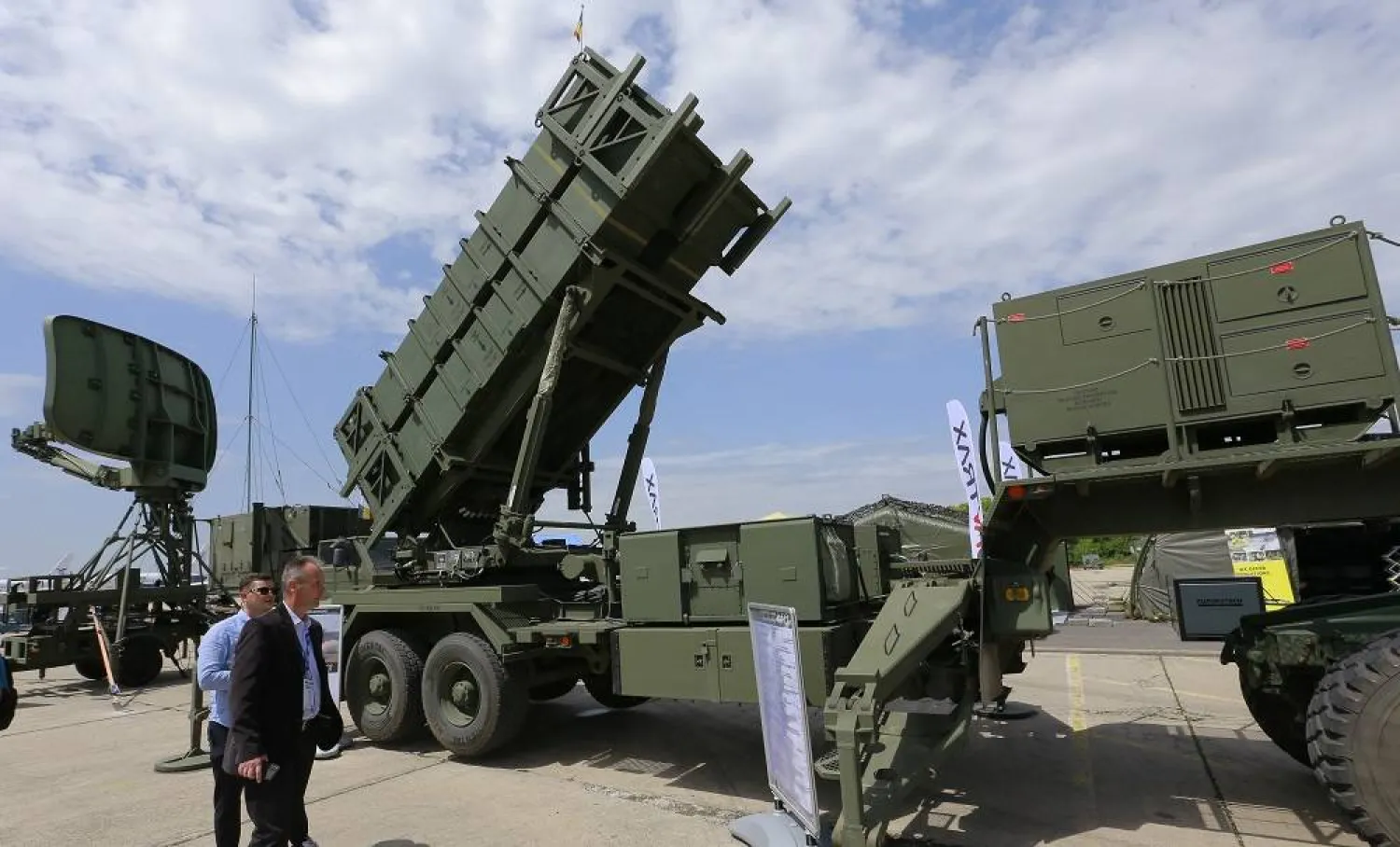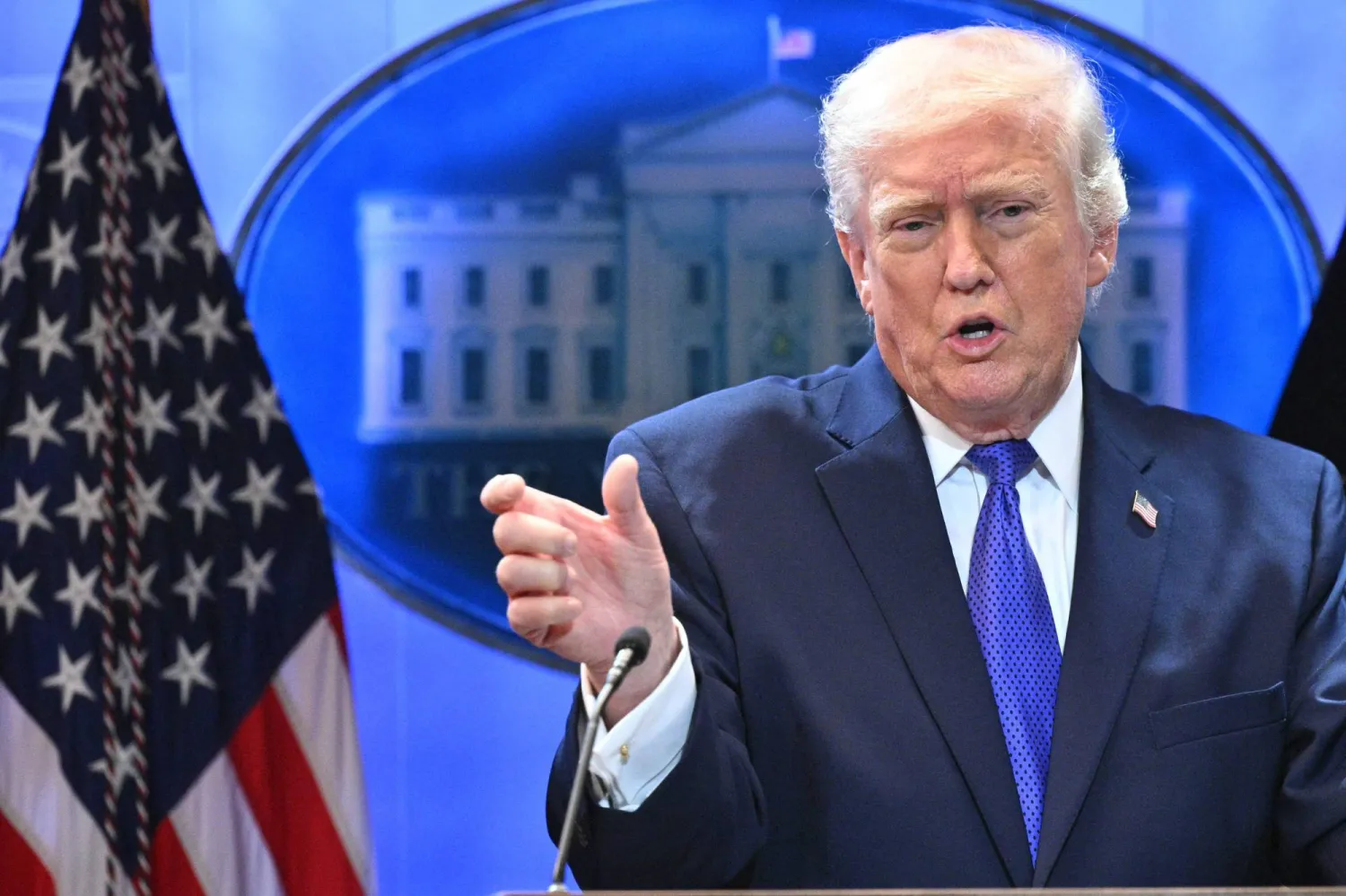Ukrainian President Volodymyr Zelenskyy on Monday secured from Spain a pledge of additional air defense missiles to help fight the about 3,000 bombs that he says Russia launches every month at Ukraine in the third year of the war.
However, Ukraine still urgently needs another seven US-made Patriot air defense systems to stop Russia hitting the power grid and civilian areas, as well as military targets, with devastating glide bombs that wreak wide destruction, Zelenskyy said.
“If we had these modern Patriot systems, (Russian) airplanes wouldn’t be able to fly close enough to drop the (glide) bombs on the civilian population and the military,” Zelenskyy told a news conference in the Spanish capital.
Glide bombs are heavy Soviet-era bombs fitted with precision guidance systems and launched from aircraft flying out of range of air defenses. The bombs weigh more than a ton and blast targets to smithereens, leaving a huge crater.
Two Patriot systems are needed to protect the northeastern Kharkiv region, where the Kremlin’s forces launched a cross-border offensive on May 10 that left Ukrainian troops reeling, Zelenskyy said. The death toll from a glide bomb attack on a Kharkiv shopping mall Saturday rose to 18, regional Gov Oleh Syniehubov said Monday, with five people still missing.
The Kharkiv push has further strained Ukraine’s already depleted army, which in recent months has been fighting Russia’s intense drive deeper into the partially occupied eastern Donetsk region. Zelenskyy said on Sunday that the Kremlin’s army is mustering at another point in Russia, farther north but close to the approximately 1,000-kilometer (600-mile) front line, aiming to stretch Ukraine's depleted army thinner and crack its resistance in the area.
Zelenskyy and Spanish Prime Minister Pedro Sánchez signed a bilateral security agreement that allocates 1 billion euros ($1.1 billion) of military aid to Ukraine in 2024, and 5 billion euros ($5.4 billion) by 2027. More Leopard tanks and artillery ammunition also feature in the package.
“After more than two years (of war), Russia’s aggression continues, and that’s why it is more necessary than ever to redouble our support,” Sánchez told the joint news conference.
The Patriot is a surface-to-air guided missile system that was first deployed in the 1980s and can target aircraft, cruise missiles and shorter-range ballistic missiles. It is expensive but is effective and sought after by armies around the world.
European countries have hesitated to send Patriot systems to Ukraine, fearing they may need them.
Spain’s King Felipe VI earlier welcomed Zelenskyy at the capital’s Barajas airport. Zelenskyy was due in neighboring Portugal on Tuesday.
He had been due to visit Spain earlier this month but postponed all his foreign trips after Russia launched its offensive in the Kharkiv region.
Ukraine has repeatedly tried to strike behind Russian lines, often with drones, though Russia’s response to the new technology used in unmanned vehicles has improved in recent months.
A Ukrainian long-range drone set a new distance record by attacking overnight an early-warning radar in the Russian city of Orsk, some 1,800 kilometers (1,120 miles) from the Ukrainian border, Ukrainian officials claimed.
The operation was conducted by Ukraine’s military intelligence, GUR, an intelligence official told The Associated Press on condition of anonymity because the person was not authorized to comment publicly. Ukraine’s previous long-range attack record was at 1,500 kilometers (930 miles) when a drone struck an oil refinery in Russia’s Bashkortostan on May 9.
It was not immediately possible to verify either claim.
Meanwhile, a Western intelligence assessment suggested that Russia’s Kharkiv offensive has subsided.
“The northern Kharkiv front has likely stabilized with Russian territorial control fragmented and not joined up,” the UK Defense Ministry said Sunday. “Russia’s gains in this axis will be limited in the coming week, as Russia’s initial momentum has been contained by Ukrainian resistance.”
That is in line with Zelenskyy’s claim last Friday that Ukrainian forces have secured “combat control” of areas where Russian troops entered the Kharkiv region.
The onslaught unfolding as the weather improves has brought Ukraine’s biggest military test since Russia’s full-scale invasion in February 2022. Slow deliveries of support by its Western partners, especially a lengthy delay in US military aid, have left Ukraine at the mercy of Russia’s bigger army and air force.









